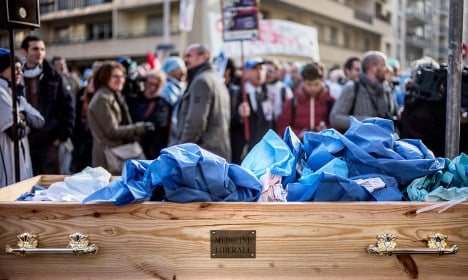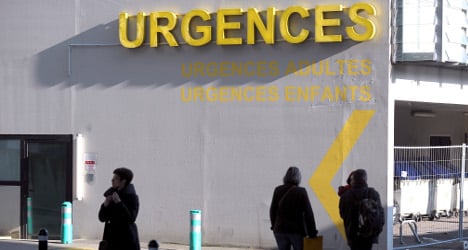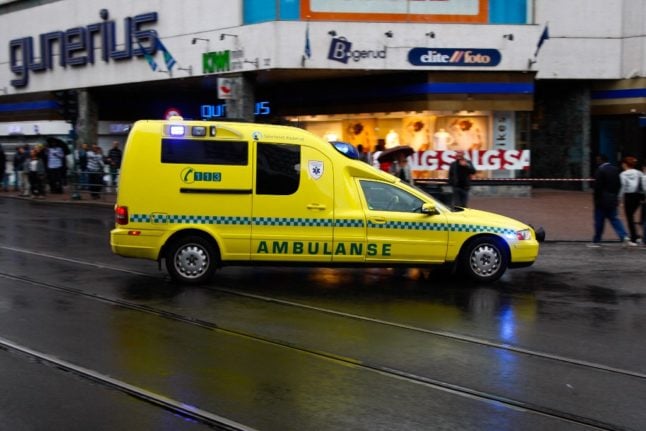The new system, which, will come into effect in France in 2017.
DOCTORS
Angry French doctors to close surgeries en masse
With a parliamentary debate on controversial health reforms kicking off on Tuesday, doctors around the country are due to close their surgeries to show their disgust at a new system they say will cripple France's healthcare service.
Published: 31 March 2015 09:41 CEST

A scene from an earlier demonstration against the reforms, in Lyon. Photo: AFP
Tuesday is not the day to be ill in France.
As many as 80 percent of surgeries will be shut in some areas across France on Tuesday as French doctors continue their protests against health reforms put forward by Health Minister Marisol Touraine.
As the bill goes before parliament doctors have called for a "Journée Santé Morte", which roughly translates as "Day of Dead Health", in which they are calling on doctors to close surgeries and join protests across the country.
The planned reform that have provoked the ire of the GPs is the change to the system of payments which will see an end to patients handing over cash up front for an appointment. Instead doctors will be reimbursed directly by insurance companies, whether public or private.
Doctors have already taken to the street this month in protest, claiming that the system will encourage late payments, will complicate matters for busy GPs, and will end up encouraging members of the public to visit the doctor for trivial matters.
Jean-Paul Ortiz from the Confederation of French Medical Unions (CSMF), the main union behind the protests, told The Local recently that the change is “unacceptable” for those in his profession.
“Both doctors and patients in France will lose their liberty and independence. We will be dictated to by insurance companies and depend on them for our salaries," he said.
“We will be forced to spend hours checking all the reimbursements which are normally full of errors. Most doctors don’t have secretaries and we just don’t have the time to do it."
Despite the repeated protests, Minister Touraine has insisted the plans will go ahead.
She told France 2 radio that the system will be beneficial for France as it will facilitate access to health care for the public, adding that doctors worried about losing out on payments can rest assured that late fees will be introduced after seven days.
The new system, which, will come into effect in France in 2017.
Url copied to clipboard!



 Please whitelist us to continue reading.
Please whitelist us to continue reading.
Member comments